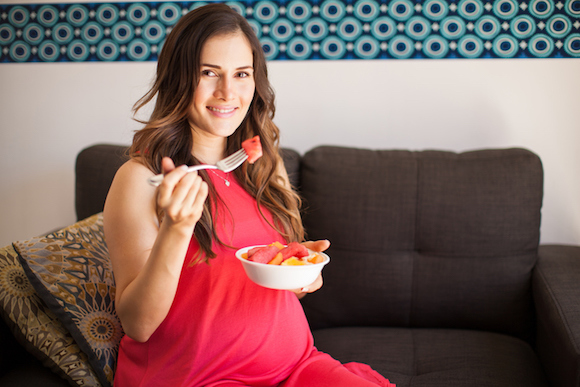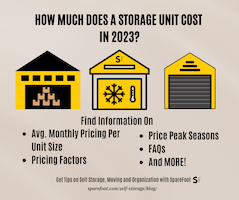Moving is almost always a stressful experience, whether you’re moving down the block or embarking on a cross-country journey. One thing that can make the whole thing even more stressful? Being pregnant. The physical, emotional, and mental demands of pregnancy can complicate a process that already involves quite a bit of upheaval.
Still, moving while pregnant is incredibly common. Many people realize that their space is insufficient to house a baby (oh, and all of that baby’s associated stuff), have employment changes, desire to be closer to to family, or otherwise experience life transitions that necessitate moving during the childbearing years.
So don’t worry—you’re not alone if you’re facing a transition in your living situation around the same time as welcoming a new life into the world. Here are some tips to make the experience of moving while pregnant easier, happier, and less stressful overall.
1. Time Your Move
If you have any control over when your move is scheduled, the second trimester is probably the ideal time, says certified nurse midwife Emma Clark, CNM, of Washington, DC. This is often the stretch of months when the sickness of the first trimester has passed, but before the physical discomfort of the third has begun. Women in the second trimester can have more energy, both physically and mentally.
2. Enlist Help
If you can afford it, professional packers and a moving company will make your move a breeze. If you can’t swing it, some willing family and friends can hopefully fill the gap in terms of assistance.
But there’s still options if your family and friends aren’t the hauling-boxes-and-wrapping-dishes types—ask if they can help out by providing healthy meals, watching older children, taking care of pets, or otherwise doing tasks that can make the move smoother and less stressful.
No matter who ends up helping, it’s key not to try to go it alone, says Clark: “A lot of people are reluctant to take help, but when you’re pregnant, it’s important to let people help. If you have the finances, outsource whatever you can (even if you would under other circumstances do them yourself). In most big cities, there are services like TaskRabbit that you can hire to do do specific moving-related tasks.”
3. Be Careful
Pregnancy is a normal biological process, but that doesn’t mean you shouldn’t take it easy when packing and moving.
“Moving is a lot of physical work, so when you are pregnant you want to take into consideration that your body is different than it usually is,” Clark says. “Don’t be lifting anything super heavy, especially if you haven’t been lifting before and throughout your pregnancy. When you’re pregnant, your center of gravity shifts and changes, so you may not be able to haul boxes as well as you think you can.”
After a long day of packing or unpacking, try some gentle stretches or a low-key yoga flow to help your muscles relax. A hot bath with epsom salts can also help soothe both body and mind after a long day.
4. Don’t Forget About Nutrition
On busy moving days, it can be hard to remember to or find time to eat and drink—and to actually eat and drink food that is beneficial for your body, rather than burgers from the drive-through down the street. That’s why so many people end up eating poorly in the days leading up to and after a move (and the fact that the kitchen gear is all packed up certainly doesn’t help!)
It’s key that pregnant people eat enough food to fuel both their own bodies and the growth of their babies. For example, pregnant women should be eating an average of 500 extra calories per day. So don’t shirk nutrition, no matter how inconvenient it might be during your move.
Make sure you have easy access to healthy, filling snacks (including foods with protein and fat for energy and stamina, like beef jerky or nut butter). You can fill a small cooler with quick, nutritious foods like yogurt, hard-boiled eggs, hummus and sliced fruits and vegetables and keep it with you in the car or in the cab of the moving van
As for meals, some areas have healthy meal delivery services, so you could spring for a couple of lunches and dinners to have at the ready. If you’re the super-prepared type, you could even cook and freeze some nutritious meals to defrost as you unpack at your new place.
5. Listen to Your Body
It can be tempting to push your limits to get things done during a move, but prioritize self-care and relaxation as much as you can, says Clark. Your body will send you signs if you’ve overdone it, often in the form of Braxton Hicks contractions (also called “practice” contractions), pain, and swelling. If any of these symptoms worsen over time, call your doctor or midwife. If you are having painful, regular contractions before 37 weeks gestation, you should absolutely let your provider know, as it could be a sign of pre-term labor.




